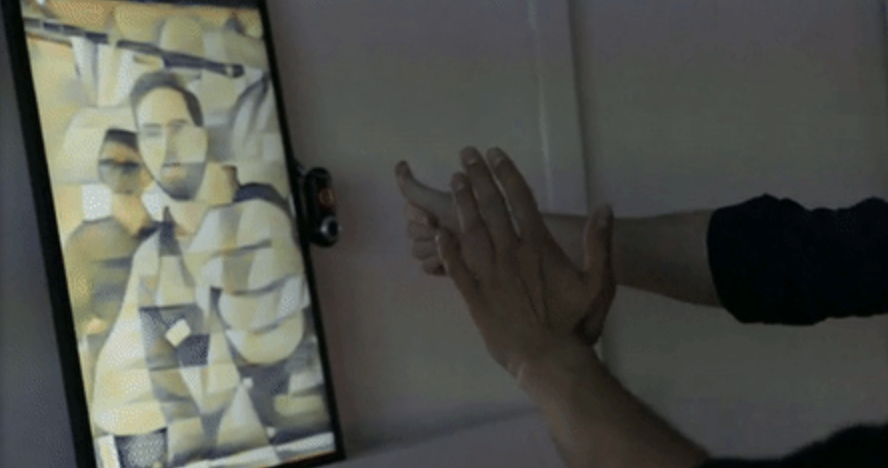Cubist Mirror is a mirror which reflects the world back in the Cubist painting style.
It was first installed for alt-AI, a conference about art & artificial intelligence which occurred in May 2016 at The School for Poetic Computation in New York. The mirror is an LCD screen with a webcam to the side, running an openFrameworks application which continuously applies a real-time variant of the style transfer technique to the camera feed.
Artist and programmer Gene Kogan developed the Cubist Mirror for “alt-AI,” a conference about art and artificial intelligence that took place this past May at the School for Poetic Computation in New York.Gene Kogan is an artist and programmer who is interested in generative systems and the application of emerging technology into artistic and expressive contexts. He writes code for live music, performance, and visual art. He contributes to open-source software projects and gives workshops and demonstrations on topics related to code and art.
Gene Kogan said, The style transfer script was implemented in chainer by Yusuke Tomoto, based on the March 2016 paper “Perceptual Losses for Real-Time Style Transfer and Super-Resolution” by Johnson, Alahi, and Li. Special thanks to openframe.io for setting up the screen, Yusuke Tomoto for the chainer code, and SFPC for hosting the work. Video filmed and edited by Sarah Riazati.
If the machine learning mirror got your attention, that is Kogan’s goal, but only to direct it to the little-discussed applications of machine learning that are all around us. “Machine learning is relevant in many domains,” Kogan says. “Art can be an interesting way of starting a conversation about these very powerful technologies that are growing in their prominence every day.” He worries that engineers are not giving enough thought to the built-in biases of these systems.
Kogan’s hope is that promoting machine art, like the Cubist Mirror, will bring about awareness and discussion of real-world impacts. “The more people are literate about what these algorithms can do,” he says, “the more they’ll be concerned with using them in unjust ways.”
